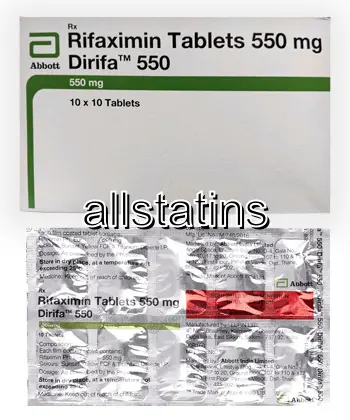| Package | Dosage | Price | Price per Dose | |
|---|---|---|---|---|
| Dosage: 200mg | ||||
| 270 pill | 200mg | NZD669.98 | NZD2.48 | |
| 180 pill | 200mg | NZD490.51 | NZD2.72 | |
| 120 pill | 200mg | NZD358.90 | NZD2.99 | |
| 90 pill | 200mg | NZD284.12 | NZD3.17 | |
| 60 pill | 200mg | NZD206.36 | NZD3.44 | |
| 30 pill | 200mg | NZD107.65 | NZD3.59 | |
| 20 pill | 200mg | NZD74.75 | NZD3.74 | |
| 10 pill | 200mg | NZD41.85 | NZD4.19 | |
| Dosage: 400mg | ||||
| 270 pill | 400mg | NZD1,226.32 | NZD4.55 | |
| 180 pill | 400mg | NZD861.41 | NZD4.79 | |
| 120 pill | 400mg | NZD592.21 | NZD4.94 | |
| 90 pill | 400mg | NZD457.61 | NZD5.08 | |
| 60 pill | 400mg | NZD314.04 | NZD5.23 | |
| 30 pill | 400mg | NZD161.49 | NZD5.38 | |
| 20 pill | 400mg | NZD110.64 | NZD5.53 | |
| 10 pill | 400mg | NZD56.80 | NZD5.68 | |
| Dosage: 550mg | ||||
| 270 pill | 550mg | NZD1,453.64 | NZD5.38 | |
| 180 pill | 550mg | NZD996.01 | NZD5.53 | |
| 120 pill | 550mg | NZD717.83 | NZD5.98 | |
| 90 pill | 550mg | NZD565.29 | NZD6.28 | |
| 60 pill | 550mg | NZD385.82 | NZD6.43 | |
| 30 pill | 550mg | NZD200.37 | NZD6.67 | |
| 20 pill | 550mg | NZD140.55 | NZD7.03 | |
| 10 pill | 550mg | NZD74.75 | NZD7.48 | |

Rifaximin Description
Introduction to Rifaximin
Rifaximin is an oral antibiotic commonly used to treat various gastrointestinal conditions. It belongs to the rifamycin group and works by inhibiting bacterial RNA synthesis. Due to its targeted action and minimal absorption into the bloodstream, it is mainly effective within the digestive tract. Many patients appreciate its effectiveness combined with a generally good safety profile.
Uses and Applications
The primary use of Rifaximin is to treat infections such as traveler's diarrhea caused by certain strains of bacteria. It is also prescribed for hepatic encephalopathy, a condition that arises in patients with liver disease due to abnormal brain function resulting from toxins. Additionally, Rifaximin is utilized in managing irritable bowel syndrome with diarrhea (IBS-D). Its broad range of applications makes it a versatile choice for healthcare providers dealing with intestinal bacterial overgrowth.
Mechanism of Action
This medication works by binding to the bacterial RNA polymerase enzyme, preventing bacteria from multiplying. Because it acts locally in the gastrointestinal tract and is poorly absorbed, it has a limited systemic effect. This characteristic reduces the likelihood of systemic side effects and minimizes disruption to beneficial gut flora, although some impact on gut bacteria can still occur.
Pros and Effectiveness
Many users report rapid relief from symptoms after starting Rifaximin. Its targeted approach means that it typically causes fewer side effects compared to broader-spectrum antibiotics. Patients with traveler's diarrhea often experience quick symptom resolution. Its effectiveness in preventing recurrence of hepatic encephalopathy episodes has also been well documented, making it a valuable medication in chronic liver management. For IBS-D, many users notice an improvement in bowel habits and overall comfort.
Potential Side Effects and Precautions
While Rifaximin is generally well tolerated, some users might experience mild side effects. These can include nausea, fatigue, dizziness, or gastrointestinal discomfort. Allergic reactions are rare but possible. Because it affects gut bacteria, in some cases, it can lead to overgrowth of resistant bacteria or cause localized infections such as Clostridioides difficile. It is crucial to follow healthcare provider instructions and complete the prescribed course of treatment to minimize resistance development.
Patient Perspectives and Reviews
Many patients find Rifaximin to be effective in alleviating their symptoms quickly. Those treated for traveler's diarrhea often report significant improvement within days. Patients with hepatic encephalopathy appreciate its role in reducing recurrence and improving quality of life. However, some users note that the medication is costly, which can be a limiting factor for long-term use. Overall, the consensus is that when used appropriately, Rifaximin offers a reliable and well-tolerated option for gastrointestinal infections and related conditions.
Conclusion
Rifaximin remains an important choice in gastrointestinal therapy due to its targeted action and minimal systemic absorption. Its ability to treat a variety of digestive issues effectively makes it a preferred option for many healthcare providers. While side effects are relatively uncommon, prudent use and adherence to medical advice are essential to ensure safety and optimal outcomes. For those seeking an effective medication for specific intestinal conditions, Rifaximin offers a compelling combination of efficacy and safety.
